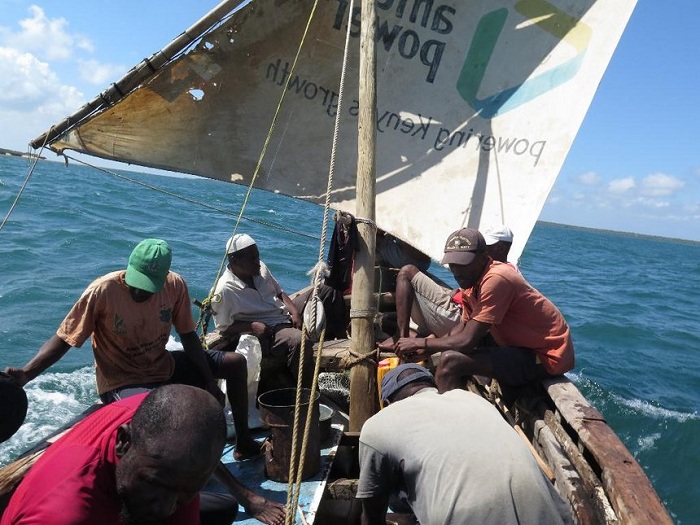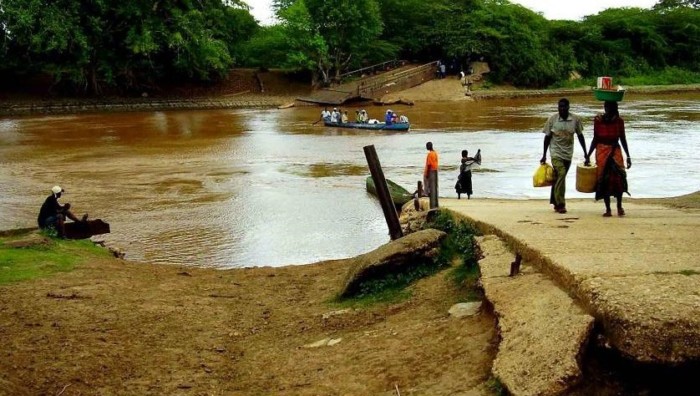The national government through the ministry of environment and forestry has set aside Sh. 340 million for the rehabilitation of the Tana Delta ecosystem.
Cabinet secretary Keriako Tobiko announced the plan when he toured Kalota village that is the worst affected by salinity of the environment.
Tobiko was accompanied by area leaders among them Tana River senator Juma Wario, Garsen MP Ali Wario and his Galole counterpart Said Hiribae.
Others who accompanied him included NEMA DG Godfrey Wakhungu and NEMA board member Halima Ware.
The money he said will be used for the short term plan as the country focuses on the long term plan which he said was conservation of upper lands such as the Mt. Kenya region that are sources of water for the Tana River Delta region.
The Director General of the National Environmental Management Authority (NEMA) Godfrey Wakhungu said that the short term plan which is pegged under the Land Use plan for Tana Delta will focus in constructing brooks to prevent sea water from flowing in the hinder land.
He said that the sea water was the cause of problems facing residents such as salty water, animal diseases and poor health among people and also poor soils that had resulted to dwindling agricultural fortunes.
Wakhungu assured residents that the construction of brooks will commence early next month so that they can resume their normal social economic activities.
Residents claimed that the salty water had rendered their farms unproductive and that farmers had experienced huge losses while pastoralists had also lost hundreds of heads of cattle as a result of consuming contaminated water.
“We are staring at a huge problem ranging from community conflicts, hunger, diseases and poverty just because of this sea water,” said a resident.
The senior chief of Kole Masa location Ware Bruno where the salinity problem was being experienced said that more than three locations including Kole Masa, Ozi and Chara had been affected and called on the government to rush in and help.
“Rice farmers and fishermen have been the hardest hit since the land is no longer productive while fresh water fish have died while animals lack milk and some have died because drinking salty water,” he said.
Bruno added that residents had taken upon themselves to construct brooks but due to limited resources their efforts had been drained.
Mzee Salim Zola Zola said that diarrhea was a normal occurrence among residents and a risk of cholera was looming.
Garsen Member of Parliament Ali Wario said that the Tana Delta ecosystem was the second largest in Africa after the Niger Delta in Nigeria and that it had been classified as a rasma site by the United Nations.
“The Delta must be protected because it is not only useful to us but to the entire world, let a solution to this problem of water be found so that residents can reap the benefits of the Delta resources,” he said.













